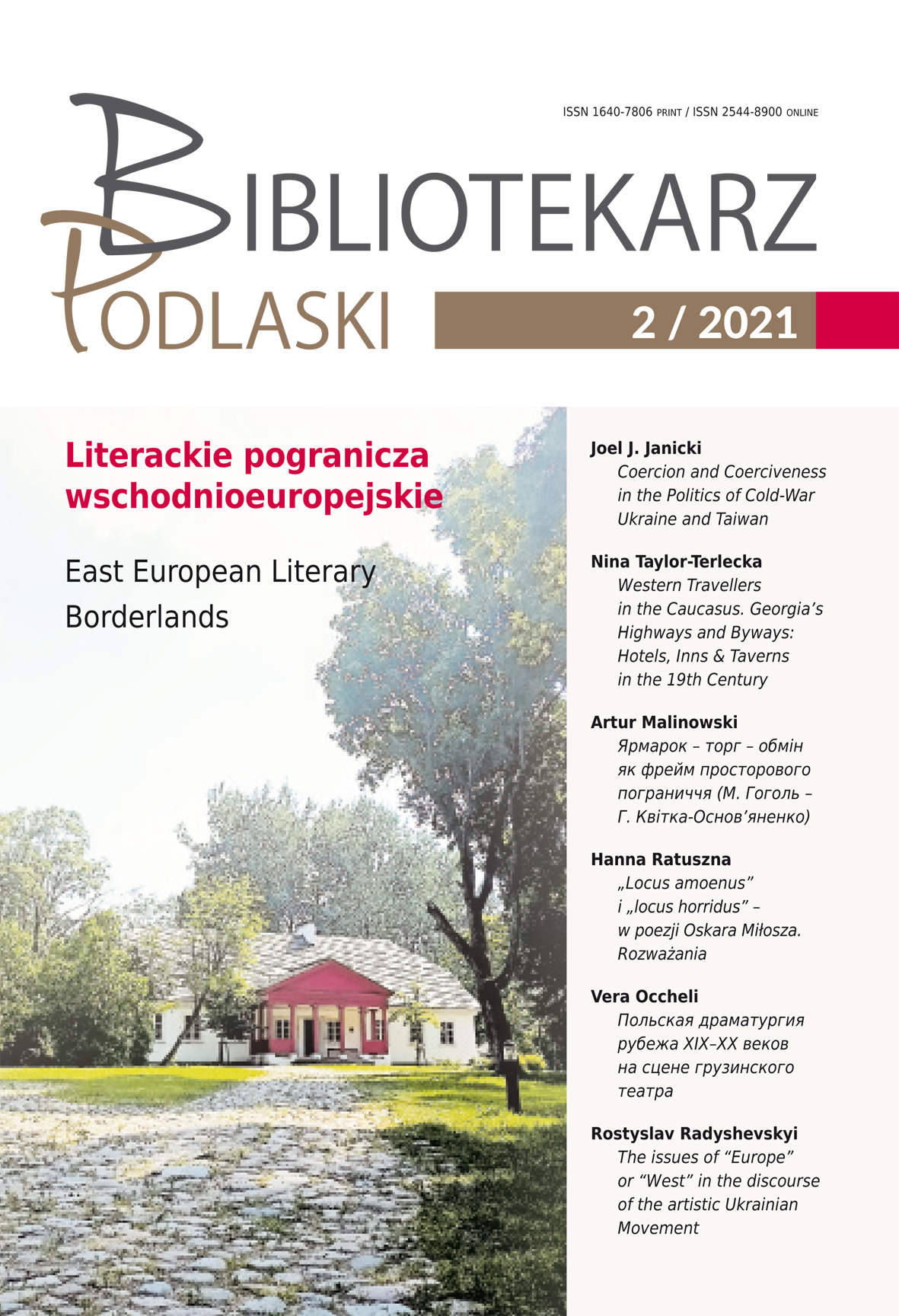Abstract
he presented considerations are an attempt to analyse such concepts as memory and dream, in which the image of the “country of childhood” plays an important role. Oskar Miłosz returns in his work, including the poem entitled In the Country of His Childhood Years (from the volume Les Sept Solitudes from 1906), to the past from where he extracts memories of Lithuania. The past is a place for him, time – marked by sensuality – is both locus amoenus and locus horridus. By “imagination creating” the poet suggests various images of symbolic character; the lyrical subject of his poems exists “among the ruins”. Like Baudelaire in the poem Swan, or Nerval – he wanders around Paris, looking for traces of his homeland in a new space. He is like Orpheus who gains wisdom and mystery in loss. The analysis of selected works by Oskar and Czesław Miłosz, the memory of their family relations, allow to understand their artistic choices and the longing for Lithuania,
the “country of childhood”, which is inscribed in their works.
References
Baudelaire Ch., Łabędź, [w:] tegoż, Kwiaty zła, przeł. M. Ciura, Warszawa 2017.
Benjamin W., Anioł historii: eseje, szkice, fragmenty, przeł. H. Orłowski, K. Krzemieniowa, J. Sikorski, Warszawa 1996.
Benjamin W., Berlińskie dzieciństwo, przeł. B. Baran, Warszawa 2010.
Bergson H., Materia i pamięć. O stosunku ciała do ducha, przekł. W. Filewicz, Warszawa 2012.
Foucault M., Filozofia, historia, polityka. Wybór pism, Warszawa – Wrocław 2000.
Garbol Ł., Po upadku. O twórczości Czesława Miłosza, Lublin 2013.
Miłosz Cz., Czeladnik, [w:] tegoż, Druga przestrzeń, Kraków 2002.
Miłosz Cz., Dwór, [w:] tegoż, Na brzegu rzeki, Kraków 1994.
Miłosz O., Les Arcanes, [w:] Cz. Miłosz, Ogród nauk, Paryż 1979.
Miłosz O., W kraju dzieciństwa, [w:] O.V. de L. Miłosz, Wybór poezji, tłum. M. Leśniewska, Kraków – Wrocław 1982.
Articles published in the “gold open access” mode on the basis of a non-exclusive license agreement between the publisher and the author. Permitted use:
- the publication may be read and stored on any device,
- the publication may be cited (with obligatory reference to the author, the title of the text, as well as the full title, bibliographic address of the issue and page of the journal)
The editorial team of “Bibliotekarz Podlaski” implements an open access policy by publishing materials in the form of the so-called Gold Open Access. From volume 42 (issue 1/2019), the journal is available under the Creative Commons license (Attribution – ShareAlike: CC BY-SA).
The key declarations of the Open Access and Open Science movement, which we fully support, are available on the CEON Open Science website.
COPYRIGHT:
The editorial team of “Bibliotekarz Podlaski” implements an open access policy by publishing materials in the form of the so-called Gold Open Access. The journal is available under the Creative Commons license – Attribution – ShareAlike 4.0: International: CC BY-SA 4.0).
The key declarations of the Open Access and Open Science movement, which we fully support, are available on the CEON Open Science website.
“Bibliotekarz Podlaski” allows its readers to read, download, copy, distribute, print, search and link to the full content of articles. We enable full, immediate, unlimited (both in a territorial, temporal and technical sense) open access to all published content, in accordance with the principle that freely available research increases and accelerates the global development of science and the exchange of knowledge.
The editorial team of “Bibliotekarz Podlaski” encourages authors to place articles published in the journal in open repositories (after the review or the final version of the publisher), provided that a link to the journal’s website is provided.
The journal does not charge the authors any fees for accepting and publishing their texts.


